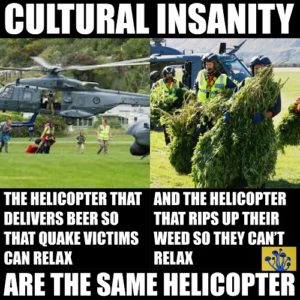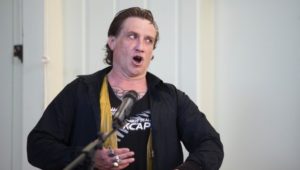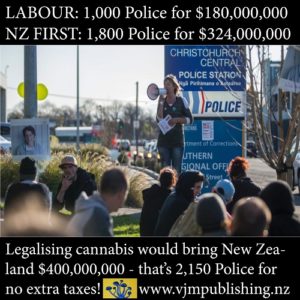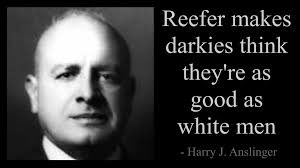
Category: politics
Why are the Tribal Huk More Effective Than the New Zealand Government?

Frustrated by the feeble responses from local law enforcement to requests for help cleaning out crystal methamphetamine dealers from their community, a street gang made up of mostly underprivileged youths takes the problem into their own hands with immediate and complete success, decommissioning a dozen meth houses within 24 hours. Something from the fringes of a dystopian cyberpunk novel like The Verity Key, set in the 2070s? No – this is the small rural Waikato town of Ngaruawahia, population 5,000, in 2016.
Achieving this was possible because the locations of and locations from which the dealers sold were all known. All it took was a public meeting organised by Tribal Huk President Jamie Pink (pictured above), at which he stated that crystal meth dealers had 24 hours to leave Ngaruawahia or they would be physically removed from the town.
This throwing down of the gauntlet has apparently resulted in a town free of dealers of the drug. The question then becomes: why could the Police not have done this?
The least secret reason is that the Police are the army of the rich, and the residents of Ngaruawahia do not make large tax contributions to the upkeep of the New Zealand Police force. Like all poor communities, therefore, they are of the lowest priority for protection by law enforcement.
Moreover, the rich generally do not have problems with P dealers making offers to their sisters and daughters as the rich drink alcohol.
The main reason, however, is this. The Tribal Huk actually has more community support among the disadvantaged than the New Zealand Police. This is a fact widely known and accepted by the poor whose neighbourhoods house the crystal meth dealers, and is much less understood by the wealthy.
The Police are not considered by the poor to be on their side because they put the poor in prison for cannabis offences, and because they give the poor car fines to keep the roads clear for the rich.
The opposite situation occurs in places where cannabis is not illegal and where the Police are properly funded through adequate taxation, such as the Netherlands. In the Netherlands, cannabis users (the proportion of whom in the population is less than 40% of the New Zealand figure) have no inherent reason to distrust the Police as their possession of cannabis is not a crime.
In New Zealand the Police are like an occupying army if you are a cannabis user. Distrust is the natural consequence of the accumulated fear brought on by the possibility that the Police might aggress against you in the enforcement of cannabis laws.
This community support might be a result of the Tribal Huk’s successful ongoing efforts to feed over 500 Waikato schoolchildren, something that the Ministry of Education has not been able to achieve. The Tribal Huk deliver their sandwiches to 25 different schools within the region.
There are no national food in schools programs in New Zealand because we don’t want to pay taxes to feed other people’s kids. There is not sufficient solidarity in New Zealand for such a thing to be acceptable.
Pink himself, in the article linked above, refers to the link between feeling hungry and feeling angry, something that is obvious to any poor child but is a lesson from another dimension to the crusty, distant old men who make decisions in this country.
Anyone with any sense knows that if you are a hungry child, being told to sit down in a classroom on concentrate on anything other than food is going to make you angry. Few adults could handle such a thing without anger.
And yet, despite a full stomach being absolutely necessary if a child is going to learn anything meaningful from school, the New Zealand Government has failed to provide something as simple as sandwiches.
Perhaps the Tribal Huk should have some Police and Ministry of Education funding diverted their way?
The conclusion appears to be that government works best when there is sincere mutual support with the people it governs, and the precise structure or ideology of that government is, next to this, unimportant.
Another way to put this is that government will only work when there is sufficient solidarity between the people being governed and the people doing the governing, and this is true whether the power structure involves the State or a local street gang.
The Opportunity Cost of Cannabis Measured in Police

Reefer Makes Darkies Think They’re as Good as White Men

When the propaganda push to make cannabis illegal began in earnest in the West during the 1930s, some utterly ludicrous things were spoken. The public’s fear of everything – murder, sexual permissiveness, black people – was associated with cannabis in an effort to condition them to think about the plant as negatively as possible.
One of the major tactics used in this propaganda war was to create the perception in the public mind that cannabis use was the rightful province only of the lesser races. Even the name ‘marijuana’ was chosen specifically so that the public would associate it with Mexican labourers and thus as the habit of a foreign culture.
Racism was so deeply entrenched in the America of the 1930s that prohibitionists knew that if they could convince the booze-soaked white masses that cannabis was a black man’s drug then the public would come to support its prohibition.
Arch-prohibitionist Harry Anslinger even said, when speaking to powerful figures who he wanted to convince to support prohibition, that “Reefer makes darkies think they’re as good as white men.”
Perhaps the really crazy thing, however, is that Anslinger was, in an inadvertent way, right: cannabis does make black people think they’re as good as white people. The explanation for why this is appears simple once you ask yourself why black people didn’t already think they were as good as white people.
Black people are conditioned to thinking of themselves as lower value, because this conditioning is reinforced so frequently that it cannot be escaped unless shattered at once. It’s enforced every day by small displays of social contempt, by news about the deaths of black men in Police shootings, by seeing the neglected state of black neighbourhoods.
Cannabis has the effect of breaking a person out of their psychological conditioning. Cannabis is like a lunar caustic to all the ways a person is programmed (without their consent and usually even without their knowledge) to behave in ways detrimental to themselves (or, more to the point, in ways beneficial to their programmers).
Note that a person enslaved by their psychological conditioning is worth hard money to their programmer. The more brutalised a person is, the lower the wages they will accept working for, generally speaking. As cannabis heals psychological damage, it can easily lead to workers asking for more money. Thus, the widespread use of cannabis is a threat to the capital value of the mind controllers.
The psychological conditioning that has gone into inducing black people to accept such a poor place in society is as brutal and as overwhelming as anything the Nazis thought up. It requires thousands of what are at least small displays of contempt and disrespect, enough so that black people regularly internalise much of this hatred and start to believe themselves worthy of it.
There are multiple problems with cannabis then, from the point of the view of the ruling class.
A less obvious one is that the deconditioning effect of cannabis will make white people stop thinking they’re better than black people as well, because much white supremacy is based on the same conditioned responses to thousands of social cues that contempt for other races is.
This possibility is so frightening to the modern control freaks that they dare not so much as utter the possibility of it.
